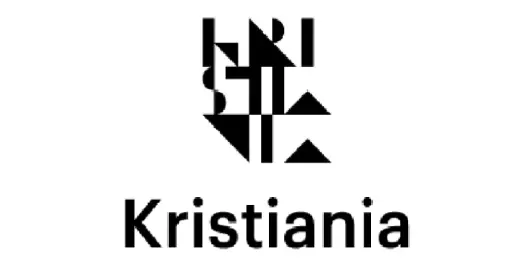Ledig stilling på Universitetet i Oslo
Blindern og Urbygningen (Foto: Wikimedia og Colourbox)
Postdoctoral fellow - Centre for Quality in Nordic Teaching (QUINT)
Deadline: 17.03.2021
Universitetet i Oslo
The University of Oslo is Norway’s oldest and highest ranked educational and research institution, with 28 000 students and 7000 employees. With its broad range of academic disciplines and internationally recognised research communities, UiO is an important contributor to society.
The Department of Teacher Education and School Research (ILS) is one of three departments at The Faculty of Educational Sciences at the University of Oslo.
ILS is a leading institution in the fields of subject didactics, school leadership and practice-relevant school research. It hosts Norway's first Centre of Excellence in Education, ProTed – a joint project between the University of Oslo and the University of Tromsø.
EKVA (Unit for quantitative analysis in education) is also part of the department, as well as four interfaculty research groups (CLEG, TEPEC, SISCO and LEA).
The Department enrols 400 students in the Teacher Education Programme (PPU) and administers the university’s Graduate Teacher Education Programme (Lektorprogrammet) with about 300 new students each year. About 200 students follow the Master Programme in Educational Leadership. ILS also manages the study programme Teach First Norway in cooperation with the City of Oslo Education Agency and Equinor.
The Department of Teacher Education and School Research has approximately 40 administrative and 100 academic staff.
Job description
A postdoctoral fellowship position is vacant in the Department of Teacher Education and School Research. The position is associated with the Nordic Centre of Excellence Quality in Nordic Teaching (QUINT) funded by NordForsk.
The QUINT Centre studies teaching quality by carrying out comparative classroom studies in the Nordic countries, capturing interaction, engagement and classroom teaching and learning across different school subjects (Mathematics, Language Arts, Social Science) and learning sites (regular classroom learning, technology supported learning, multilingual classrooms) using data from lower secondary classrooms (grades 7–9/8–10). A number of data collection methods and data sets have been used and will be made available for the actual candidates, but video recording of classrooms is central as it also provides important input for the Centre’s subprojects on teachers’ professional learning’ (pre-service and in-service learning). The Centre combines qualitative and quantitative methodology and welcomes the use of different methodologies and conceptual frameworks and coding approaches that may generate critical evidence of teaching quality.
We ask for candidates that are interested in analyzing the theoretical, empirical and cultural validity of different conceptual frameworks and coding manuals. The main focus should be placed on analyzing teaching quality across Nordic lower secondary classrooms (be it generic or subject specific) and/or the role of technology in these classrooms. The candidates will have access to comparative classroom data and student surveys from all the Nordic countries (large scale data sets in Sweden and Norway and small scale data sets from respectively Iceland, Finland and Denmark) based on the Linking Instruction and Student Achievement (LISA) research design. The LISA Nordic studies are organized as a cross disciplinary study where experts in reading and subject didactics (mathematics, language arts and social science education), video design, psychometrics and classroom studies work together in order to understand the differential impact on classroom teaching and learning.
The comparative subjects in focus will be mathematics, language arts and social science education. We ask therefore for candidates with a strong background in one or several of these subject areas, or in the role of digitalized education in the above mentioned subject areas, in comparative classroom studies, or with expertise in measurement issues relevant for analyzing classroom teaching and learning across countries. Experience with using observation manuals, conducting classroom video analyzes or analyzing teaching quality would be a clear benefit.
We seek highly motivated individuals holding a PhD that appreciates working in a Nordic/ international and cross-disciplinary working environment targeted towards analyzing teaching and learning in Nordic classrooms.
Applicants are expected to fit their research project with the overall aims and research ambition of QUINT. The successful candidate will be expected to participate actively in the QUINT Nordic Center of Excellence, in the QUINT community in the department and in the relevant research group.
More about the position
The appointment is a fulltime position and is made for a period of up to three years (10% of which is devoted to required duties, usually in the form of teaching activities).
The main purpose of the fellowship is to qualify researchers for work in higher academic positions within their disciplines.
Qualification requirements
- Applicants must hold a PhD degree or a degree equivalent to a Norwegian PhD in educational sciences, reading, subject didactics (mathematics, language arts, social science education) and/or psychometrics. Doctoral dissertation must be submitted for evaluation by the application deadline. Appointment is dependent on the public defence of the doctoral thesis being approved.
- Fluent oral and written communication skills in English and a Scandinavian language
- Project relevance to the QUINT research ambition
In the assessment of the applications, emphasis will be given to:
- The quality of the project description
- The project’s contribution to the QUINT research as a Nordic Center of Excellence
- The applicants’ academic and personal qualifications for conducting the project within the allotted time frame
- Personal suitability and motivation for the position
- Good ability to collaborate and to form part of a cross-disciplinary academic community
We offer
- Salary NOK 526 000 – 608 200 per annum depending on qualifications in position as Postdoctoral Research Fellow (position code 1352)
- A professionally stimulating working environment
- A unique possibility to become a part of a Nordic Center of Excellence and a wide Nordic / international network
- Attractive welfare benefits and a generous pension agreement, in addition to Oslo’s family-friendly environment with its rich opportunities for culture and outdoor activities
How to apply
The application must include
- Letter of application with an expression of interest and a specification of how the proposed project relates to the Nordic Center of Excellence QUINT
- CV with grades listed
- List of publications
- Certified copies of diplomas
- Project description, including progress plan (8-10 pages). It is assumed that the applicant will be able to complete the project in the course of the period of employment
- Up to three academic works that must be taken into account in the assessment
The application with attachments must be delivered in our electronic recruiting system. The application must be written in english. Foreign applicants are advised to attach an explanation of their University's grading system. Please note that all documents should be in English (or a Scandinavian language).
Applicants from outside the Nordic countries where English is not the official language must attach a TOEFL test with a minimum score of 550 unless they have a diploma from a university in an English-speaking country.
Short-listed candidates will be invited to an interview. Part of the interview will be conducted in a Scandinavian language.
Formal regulations
Please see the guidelines and regulations for appointments to Postdoctoral fellowships at the University of Oslo.
No one can be appointed for more than one Postdoctoral Fellow period at the University of Oslo.
According to the Norwegian Freedom of Information Act (Offentleglova) information about the applicant may be included in the public applicant list, also in cases where the applicant has requested non-disclosure.
The University of Oslo has an agreement for all employees, aiming to secure rights to research results etc.
The University of Oslo aims to achieve a balanced gender composition in the workforce and to recruit people with ethnic minority backgrounds.
Contact information
Apply for position















